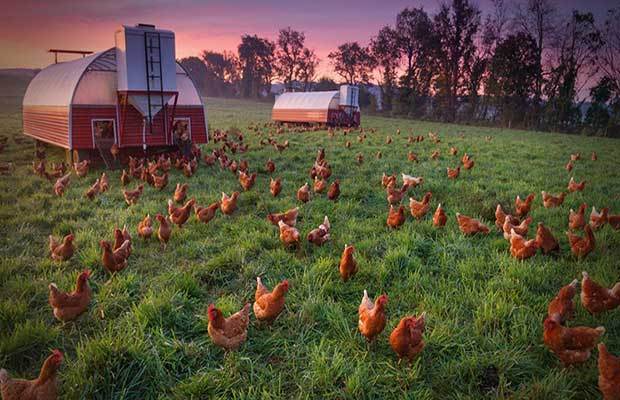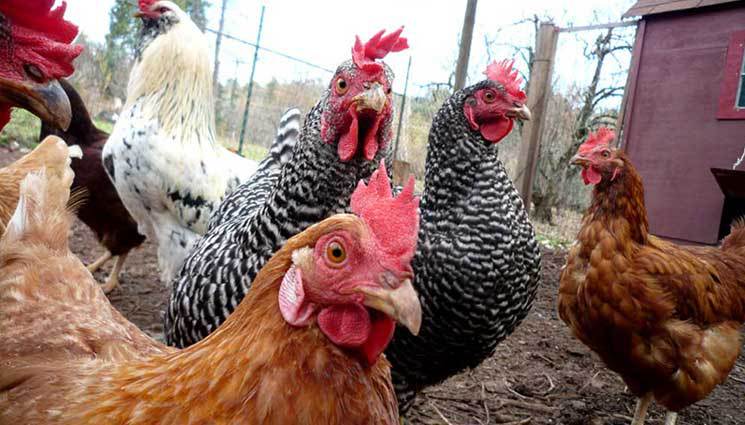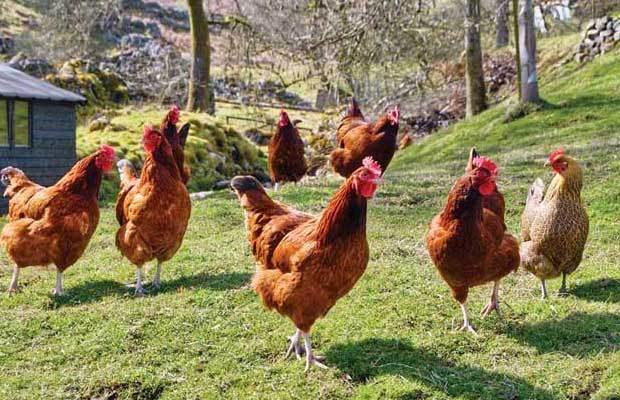
Live poultry often are carriers of Salmonella – a germ that can be harmful to humans.
But how big is the risk?
In chickens, Salmonella is a naturally occurring germ that lives in the intestines. It is not a cause of the food that they eat or how they are raised. Even organically raised chickens can have Salmonella in their gut. It usually doesn’t make the birds sick. But it can cause serious illness when it is passed to humans.
The risk of actually catching Salmonella from chickens is very small if you follow some simple sanitary steps.
Let’s take a look at how Salmonella can be transferred from chickens to humans and what to do if it happens.
How do people get Salmonella from chickens?
Salmonella can be found in the intestines of chickens. That means that their droppings can be infected. And because chickens are often in a confined space, there is a good chance that their feathers, feet and beaks also have Salmonella on them just from their walking around in their environment.
The germs can also get on anything they come in contact with – their cages, coops, water dishes, hay and dirt.
In other words, just by working with your chickens, you can get Salmonella on your hands, shoes, clothes, etc. And this creates the environment that allows you to get infected.
So how do you actually get infected?
People become infected with Salmonella by touching various parts of their body – eyes, mouth, etc. – with hands that have been working with chickens. The risk is greater with children as they are more inclined to be putting their fingers or other contaminated objects in their mouths.
Fortunately, it is pretty easy to avoid being infected with just a few cleanliness steps.
Cleanliness steps to reduce the risk of Salmonella infection
There are several steps you can take to reduce the risk of catching Salmonella when working with your chickens. They include:
- Washing your hands thoroughly with soap and water after working with your chickens or touching anything that could have been exposed to your chickens. Hand sanitizer can be used but soap and water is the best approach.
- Wash your hands when removing any clothing you wore when working with the chickens – and be sure to wash them.
- If you are raising egg laying hens, be sure to thoroughly cook the eggs before eating.
- Clean all equipment associated with the chickens – water and fed containers, etc. – frequently.
- Know the possible Salmonella infection zone. It is anywhere the chickens may roam. This means that if you raise free range chickens, it could be your entire yard.
- Don’t let chickens in the house – especially in food prep areas. Since they could have external contamination on their feet, beaks, etc., they can easily contaminate your workspace.
- Don’t keep chickens near your drinking water supply if it has any possibility of surface runoff contamination.
How do you know if you have Salmonella and what can you do about it?
Salmonella sickness has a set of symptoms that are easily recognizable:
- Diarrhea
- Vomiting
- Fever
- Abdominal cramps
If you develop these symptoms without any other obvious reason, you should get checked out. Salmonella can be a deadly disease if left untreated. Treatment is typically a round of antibiotics but if you have a severe case, it can involve hospitalization for dehydration among other issues that can develop.
Salmonella is a serious disease but simple sanitary procedures dramatically reduce the risk. Follow the simple steps in this article to ensure that your adventures raising chicken are safe and productive.
















